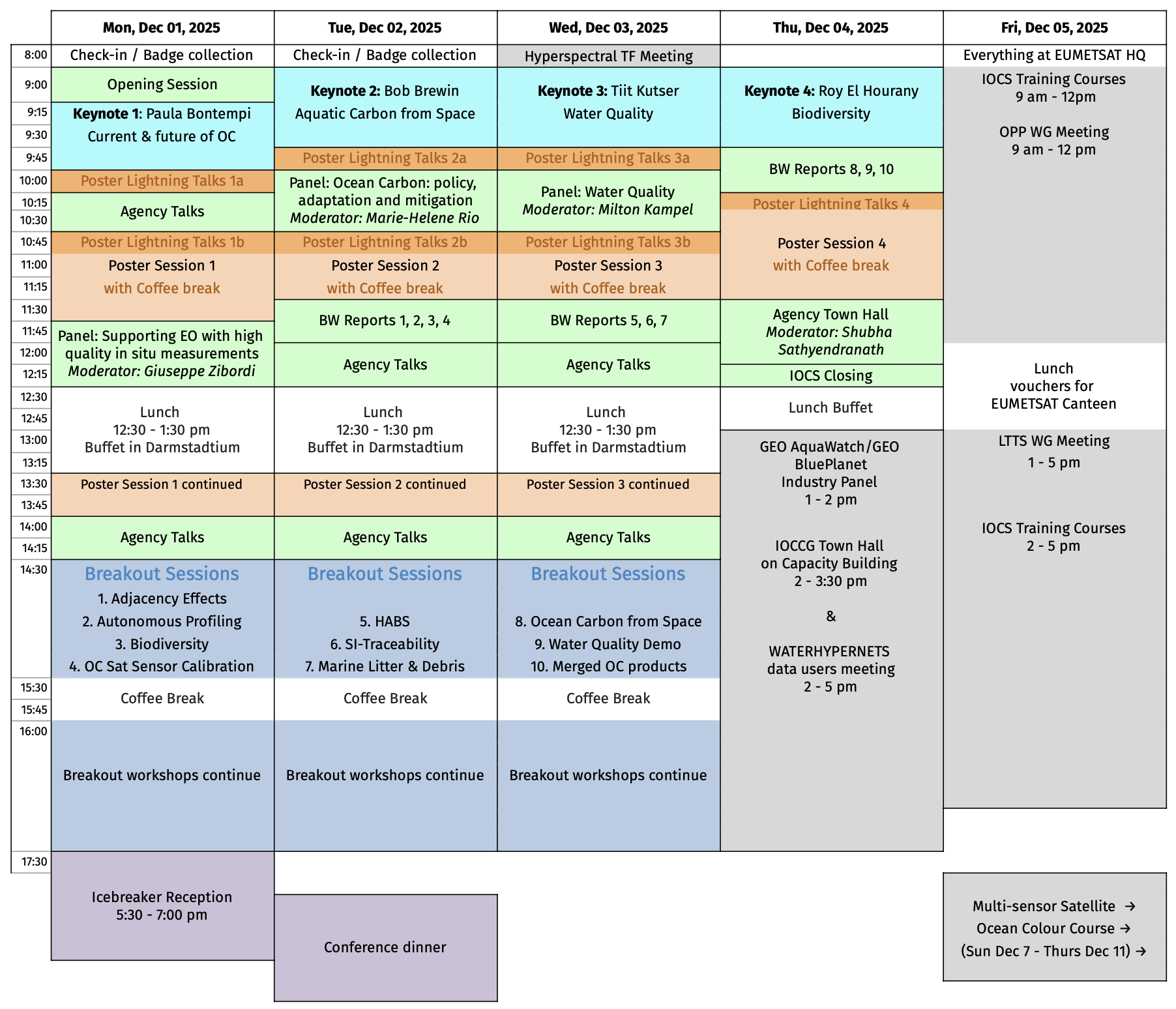Activities within the IOCS-2025 programme are expected to run from 8 am to 5:30 pm, from 1 – 4 December 2025 at the Darmstadtium Science and Congress Center, including additional meetings on Thursday 4 December in the afternoon.
Social events included with meeting registration will be held on Monday and Tuesday evening.
IOCS training sessions will run between 9 am and 5 pm on Friday, 5 December 2025 at EUMETSAT Headquarters.
IOCS-2025 plenary sessions will consist of invited talks by keynote speakers; panel discussions; presentations from space agencies on emerging applications and science from current and planned missions and past recommendations.
Poster sessions (including poster lightning sessions) allow participants to share and discuss their own research.
Breakout sessions (10 in all) will address current critical issues in ocean colour science, are interactive, and are designed to provide consensus feedback to the space agencies.
Side meetings and an additional training session are also planned in conjunction with the event. These include:
- Roadmap of Aquatic Hyperspectral Remote Sensing, Wednesday 3 December, 8-9 am
- Industry Panel, Spectrum A, Thursday 4 December, 1-2 pm
- WATERHYPERNETS Data Users Meeting, Platinum 2, Thursday 4 December, 2-5 pm
- IOCCG Capacity Building Town Hall, Spectrum A, Thursday 4 December, 2-3:30 pm
- Multi-sensor satellite ocean colour course, EUMETSAT HQ, Sunday 7 – Thursday 11 December, 9-5 pm
Schedule at-a-glance / Updated November 2025


